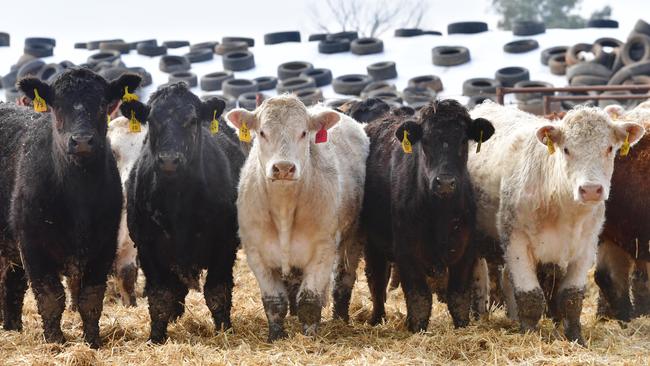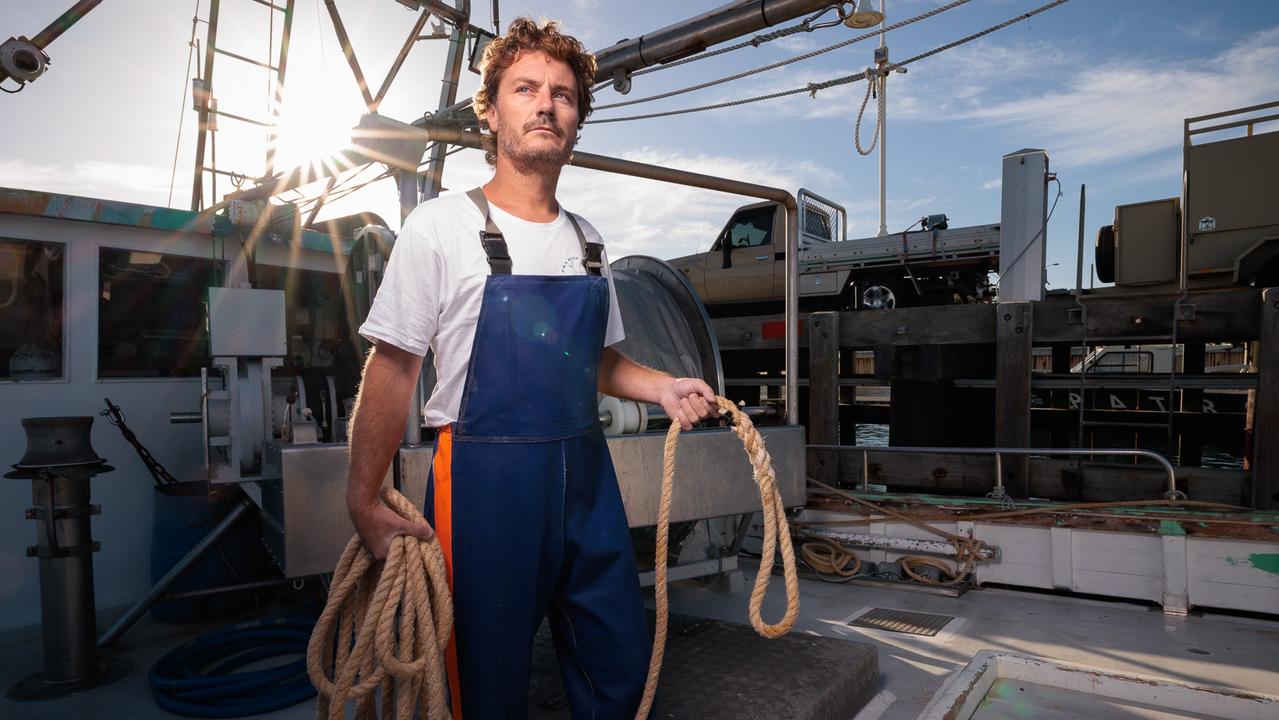Elders shares surge 16 per cent after hitting full-year earnings guidance
Elders boss Mark Allison says the rural services company is well placed to weather the long and dry summer forecast fuelled by El Niño.

Elders boss Mark Allison says the rural services company is well placed to weather the dry summer conditions forecast for many of Australia’s agricultural regions, having diversified the business to a point where it is protected from extreme weather patterns and market shocks.
Referring back to previous weather patterns over the past decade, Mr Allison said Elders had proven itself to be a resilient company that delivered stable returns.
“(If you look at) Elders results through El Niño, La Niña, bushfires, pandemic - it doesn’t make any difference - and the key reason is because of the multiple diversifications in the business,” he said.
“We’ve got geographical diversifications, but there’s also product and service diversification - there’s channel diversification. So we’re wholesale and retail, and there’s business model diversification.
“And because of this we were able to offset any regional or local climatic impact. El Niño tends to be regional or local, and dry conditions at various times are actually good, and wetter conditions at various times are actually bad. It’s not black and white.”
Elders delivered a better than expected full-year result on Monday, despite a slump in sheep and cattle valuations, and falling prices for fertilisers and agricultural chemicals that hit the company’s bottom line.
The company, which provides farmers with everything from livestock trading services to farm supplies, technical advice, financial services and insurance, reported underlying earnings before interest and tax of $170.8m in the 12 months to September, down 26 per cent from the previous corresponding period.
The result was in line with the company’s lowered guidance provided in August, when it warned of the impact of uncertain seasonal and market conditions.
Net profit after tax came in at $100.8m, down 38 per cent, as revenue fell 4 per cent to $3.32bn.
Elders will pay a final dividend of 23c (30 per cent franked), down from 28c in the previous year.
The company described it as a “strong” result given the significant market headwinds.
Investors welcomed the result, with Elders shares surging 16.3 per cent in early afternoon trade on Monday.
In its outlook, the company warned dry conditions resulting from El Niño were likely to hit summer crop production in many parts of Australia, but it expects some recovery in its rural products division due to stabilising fertiliser prices.
It also expects recent acquisitions to bear fruit, with nine acquisitions completed over the 12 months to September expected to add $8m-$10m to the company’s EBIT in 2023-24.
Mr Allison said there were a further 16 bolt-on acquisitions in the pipeline as the company looked to expand its services into more agricultural regions.
“I aggregate our market share - it’s very loose - but I say we’re probably just approaching 20 per cent. So if you think there’s 80 per cent of Australia’s blue chip areas where Elders isn’t represented,” he said.
“It’s a bit like the acquisition in Victoria that we announced the week before last - blue chip area and Elders wasn’t strongly represented.
“In Queensland there are multiple opportunities, in northern agriculture - the sugarcane coast we’ve got about four branches, so there are multiple areas.”
Earlier this month Elders announced the acquisition of south-west Victoria’s Charles Stewart Group - a livestock and real estate agency business that’s expected to generate $5m in annualised EBIT in its first 12 months under Elders ownership.
While Elders expects growth in cattle and sheep sales volumes over the coming year, Mr Allison said it would likely take up to two years for livestock prices to fully recover after huge declines due to the sell-off of excess stock.
Meanwhile, to mitigate the impact of higher interest rates and inflationary pressures, Mr Allison said the company was reducing discretionary spend on items including internal travel and entertainment, as well as the use of external consultants. He said senior executives had been asked to find an additional $10m in annual cost savings.
As part of a new three-year plan, Elders is targeting average annual EBIT growth of 5-10 per cent.
Citi analyst William Park said that while he was feeling “incrementally positive” about the company’s prospects following an analyst call on Monday, much would depend on how weather conditions played out in the coming months.
“ELD has caveated FY24 earnings with livestock and summer crop headwinds,” he said in a note to clients.
“While more confident in 5-10 per cent earnings growth through the three-year cycle, ELD appears to be cautious on earnings growth in FY24.
“If weather conditions are less severe than BOM’s expectation, we could see a material shift in rural sentiment and outlook across livestock and crop markets in Australia. This could stimulate demand levels from ELD’s end-customers across all segments.”
Wilsons analyst James Ferrier said earnings had come in slightly ahead of expectations, while the final dividend was well above the 16c payout Wilsons were expecting.
Elders shares were trading 16.3 per cent higher on Monday afternoon at $7.19.




